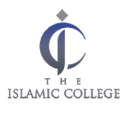HSD103 – Life of the Prophet
Course Overview
HSD103 – Life of the Prophet This module is the first part of the Islamic History modules. It aims to introduce the foundation of the formative period of Islam that began with the advent of Islam. It will present the social structure of the Arabs before the advent of Islam and the social milieu in which Muhammad was born. It focuses on the life and mission of the Prophet Muhammad, the establishment of the first Muslim community in Medina and its struggle for survival. The module will assist the student to grasp the foundation of Islam from an historical prospective and look at complex issues of the succession to the Prophet.
Module Info
- Syllabus
- Outcomes
- Strategy
- Material
sYLLABUS
- To achieve the goals of the modules the students are tasked with independently researching specific issues related to Islamic morality and preparing class-room presentations in the forms of lectures. The first few sessions of the module are spent with guest lecturers whom will give practical advice on how to deliver lectures. Topics that may be explored by students include:
- Pride and arrogance
- Remembrance of death
- Truthfulness
- Piety and taqwa
- Repentance Ostentation
- Envy
- Tafakkur (pondering)
- Hypocrisy
- Reliance on God
- Patience
- Thankfulness
- Intentions
Learning Outcomes
Knowledge
On completion of this module, the successful student will be able to:
- Identify and outline the main concepts of Islamic moral values. (A1)
- Distinguish and apply the main features of Islamic moral values from their primary sources. (A2, A7)
Skills
This module will call for the successful student to:
- Point out verses and stories of the Qur’an, the main thrust of which are morality and moral values; and use appropriate ahadith to provide support for explaining normative values. (B1, B2, B5, C1, C4, D3)
- Present findings and be able participate in class discussions. (B4, B5, C2, C4, D2)
- Demonstrate awareness of reflective learning by reviewing considered thoughts and ideas of scholars. (C7, D1)
Learning, Teaching and Assessment Strategy
The lessons will consist of taught sessions by the lecturer and guest speakers, students are expected to develop their learning through research and preparation leading to a research based presentation. The use of questioning, discussion participation and small group work in class ensures that students are constantly engaged and take an active role in the learning process.
Assessment Mode
Formative assessment involves participating in ethical discussion on topics covered in class. As part of the formative learning process each student will meet with the module leader in order to discuss their book review. A draft of the book review may be submitted for formative assessment before the 10th week. Additionally, revision sessions are arranged that will cover topics in preparation for exams, addressing student understanding and providing constructive formative feedback to students. tutorial time enables the module leader to give guidance to students on topics of concern and provide constructive feedback related to summative work.
Summative, graded assessment for this module consists of book review and a written examination. The book review will consist of two assignments of 500 words each (Outcomes4, 5). This will require students to demonstrate their learning of key skills and concepts by reviewing brooks with a particular moral theme as mentioned in the Qur’an and Hadith. The 2 hour written examination will take place at the end of the year (Outcomes 1, 2, 3).
Assessment Weighting
Book Review: 50%
Written Examination: 50%
Learning Material
Core Reading
- al-‘Amili, al-Hurr. (2003) Combat with the Self, London: ICAS Press


